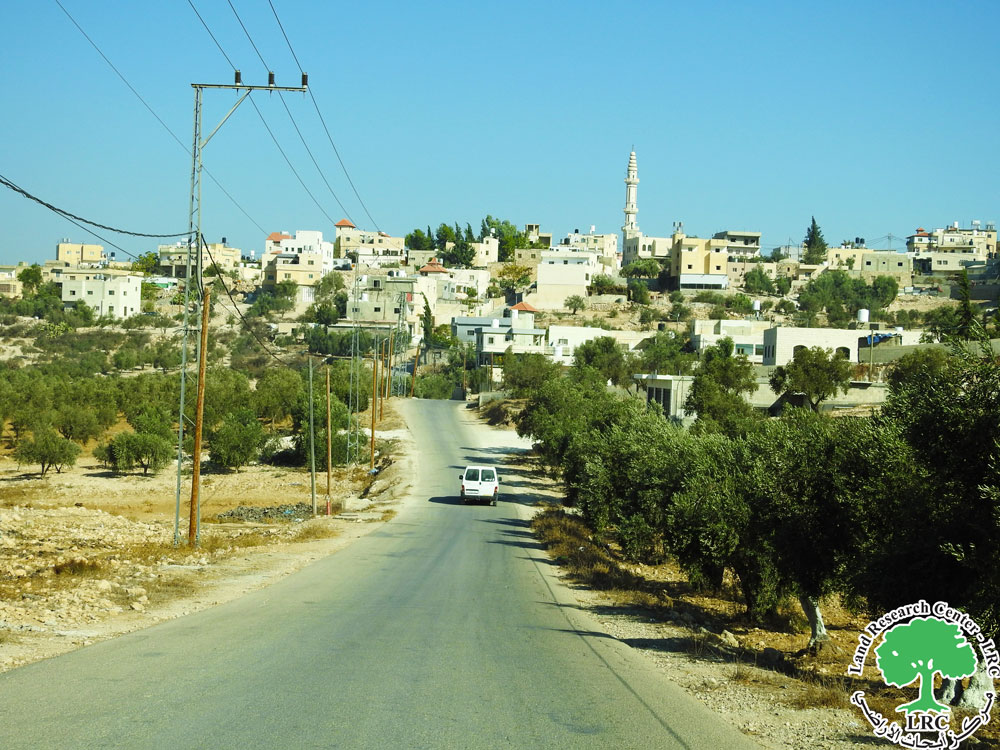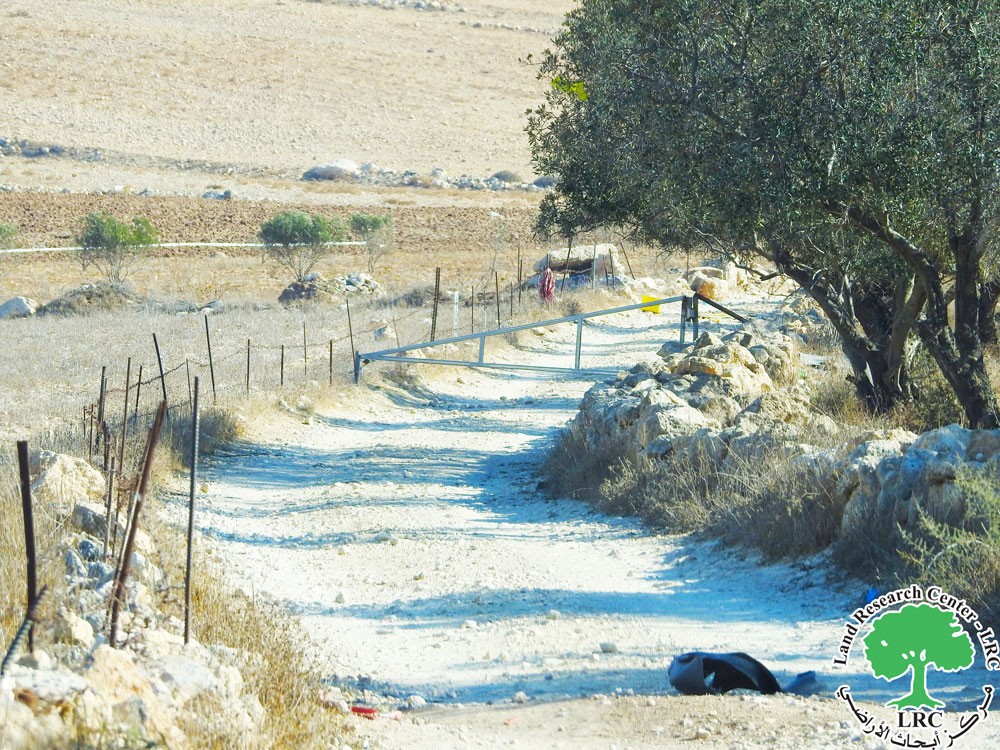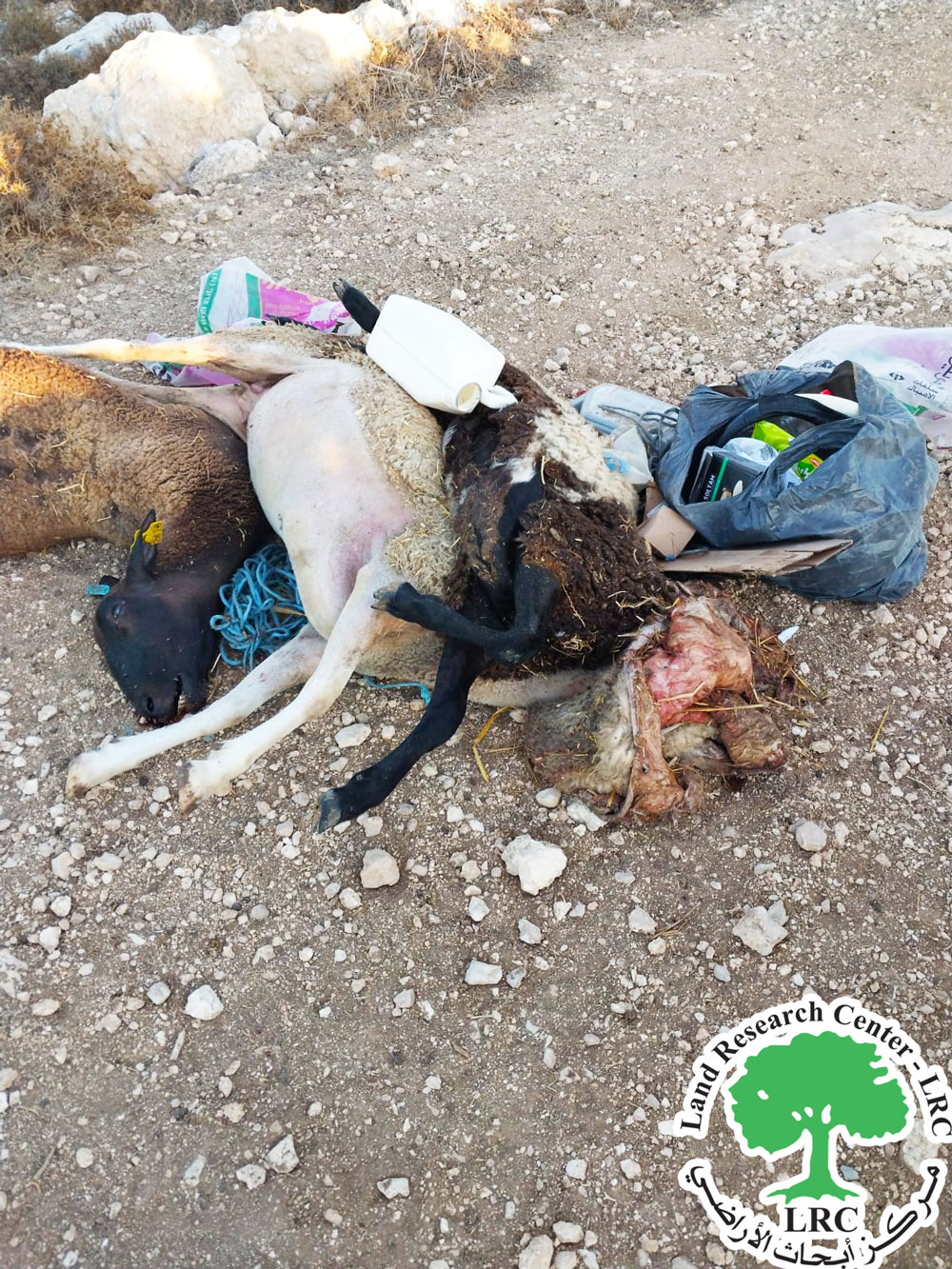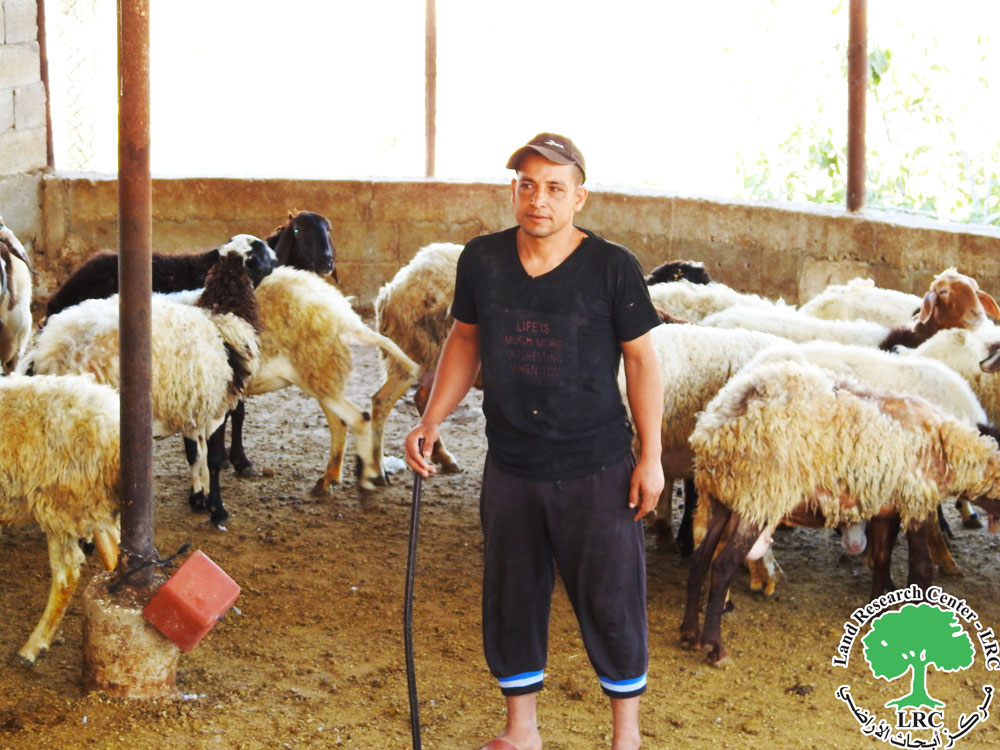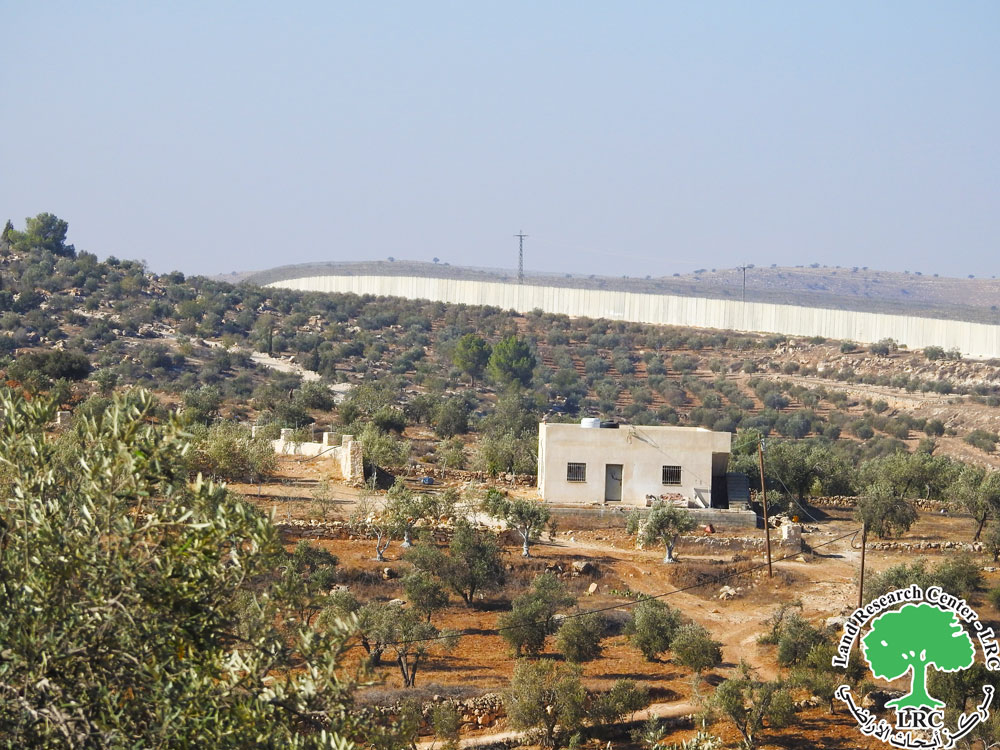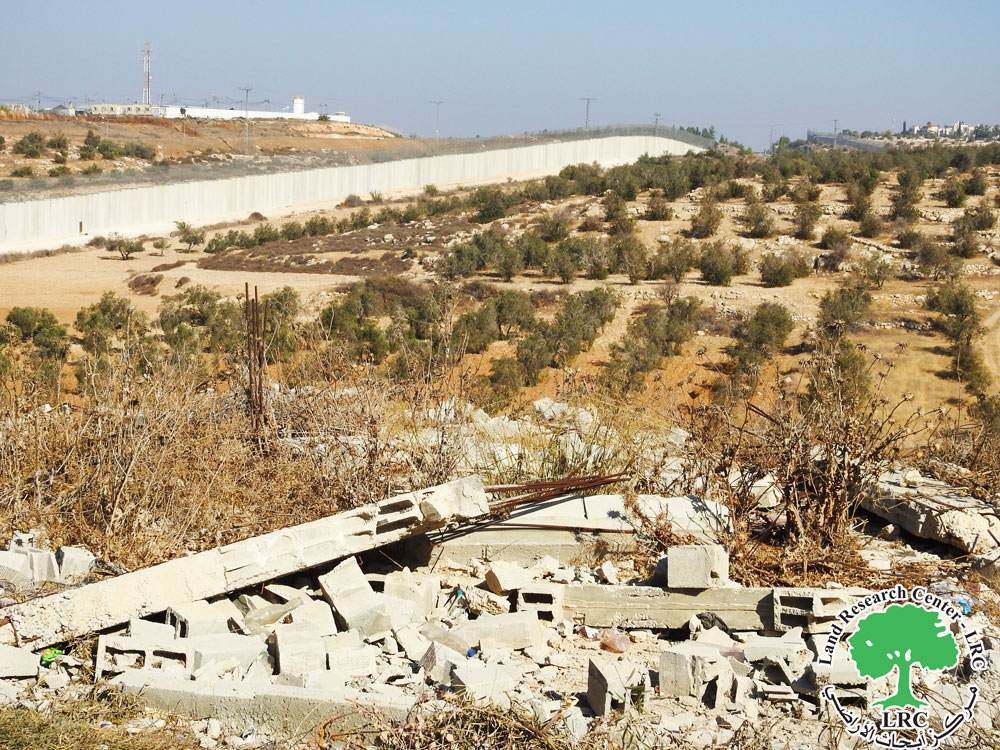النشاط الاستعماري يلحق ضرراً زراعياً وبيئياً كبيراً بقرية سكا غرب الخليل
الانتهاك: اعتداءات على مزارعين.
تاريخ الانتهاك: 10-11/2024
الموقع: سكا – بلدة دورا/ محافظة الخليل.
الجهة المعتدية: المستعمرون.
الجهة المتضررة: مواطنو قرية سكا.
تقـــــــديم:
في إطار اعتداءات المستعمرين اليهود على المزارعين الفلسطينيين في الضفة الغربية، بات المستعمرون يستهدفون باعتداءاتهم أراضي قرية سكا غرب بلدة دورا، جنوب محافظة الخليل، وباتت القرية في الآونة الأخيرة إحدى التجمعات السكانية التي يستهدفها المستعمرون باعتداءات عدة، أبرزها الاعتداء على الأراضي والمزروعات وأساليب أخرى، الهدف منها ترحيل المزارع عن أرضه أو إجباره على تركها، لفرض السيطرة الاستعمارية عليها.
فقرية سكا تقع الى الغرب من بلدة دورا، وتبعد عنها حوالي 12كم، وعلى بعد حوالي 20كم من مدينة الخليل، وتعتبر إحدى قرى دورا الأمامية ( قرى الخطوط الأمامية)، ويبلغ تعداد سكانها حوالي (1200 نسمة)، وتشتهر القرية بزراعة أراضيها بالزيتون بشكل خاص والمحاصيل الشتوية والبعلية الأخرى.
الصورة أعلاه منظر عام لقرية سكا
ويمر جدار الضم والتوسع الى الغرب من القرية، وقد أتى على مساحات من أراضيها، ويقرب كثيرا من مدرسة القرية وبعض منازل المواطنين، ويبعد عنها بضع عشرات من الأمتار فقط.
الى الشرق من القرية وعلى بُعد حوالي 3 كم كان المستعمرون قد أقاموا بؤرة استعمارية رعوية (زراعية) في العام 2016، تتبع لمستعمرة " نيجهوت" القريبة منها أيضا، ويملك المستعمر المقيم في البؤرة الرعوية قطيع من المواشي وبعض العمال (ربما يكونون من أسرته)، ويقوم بالسيطرة على الاف الدونمات في محيط البؤرة ويرتادها لرعي أغنامه فيها، وأصبح يمارس اعتداءات كثيرة على أراضي القرية والقرى المحيطة الأخرى، حيث باتت هذه الاعتداءات تتصاعد وتتزايد بشكل ملحوظ في الأيام الأخيرة.
مجلس قروي سكا: المستعمرون أغلقوا طريق زراعي هام:
يفيد رئيس مجلس قروي سكا السيد وليد حشيش بأن المستعمرون قاموا بتاريخ 24/10/2024 بإغلاق طريق زراعي هام يقع شرقي القرية، ويوضح حشيش بأن مجموعة من المستعمرين وبحراسة من جيش الاحتلال قد تجمعوا شرقي القرية ( على المفرق بين قريتي سكا وطواس) وقاموا بنصب بوابة معدنية على الطريق الزراعي المؤدي الى وادي خرسا وأغلقوها بقفل معدني، وبالتالي قطعوا الطريق وأغلقوه في وجه المزارعين الذين سيتوجهون الى أراضيهم في الوادي شرقا.
ونوه رئيس المجلس القروي بأن هذه البوابة تقع في المنطقة المصنفة " ب" التابعة لسيطرة السلطة الوطنية الفلسطينية، وأن أضرارا جمة ستلحق بالمزارعين والمواطنين مالكي هذه الأراضي جراء هذا الاغلاق، وأن هذه البوابة جاءت لمنع الوصول الى حقول الزيتون وأراض تفلح بالمحاصيل الشتوية وأخرى مراعي يرتادها رعاة المواشي، ولخص بعض الأضرار التي ستلحق بمواطني القرية والمزارعين، والتي منها:
- منع الوصول الى الأراضي الزراعية وحراثتها وفلاحتها، خاصة ونحن على أبواب موسم حراثة الأراضي وزراعة المحاصيل الشتوية.
- منع أصحاب الحقول من الوصول الى أراضيهم المزروعة بالزيتون وجني ثمارها، حيث جاء الاغلاق بالتزامن مع قطاف الزيتون في القرية والمنطقة المحيطة، وبالتالي من المتوقع أن يقوم المستعمرون بسرقة الثمار أو تلفها على الأشجار.
- منع وصول رعاة الأغنام من أهالي القرية والقرى المجاورة الى هذه الأراضي والرعي فيها، وبالتالي استفراد الراعي المستعمر بها، ورعي أغنامه فيها، والاعتداء على ممتلكات المواطنين، مما يسهم في بسط السيطرة الاستعمارية عليها.
منظر للبوابة المعدنية التي وضعها المستعمرون
ومن اللافت بأن المستعمرين قد نصبوا البوابة المعدنية على الطريق الزراعي المتفرع من الشارع المعبد المؤدي لقرية سكا، وعلى الإسفلت رسموا أسهماً تشير نحو الشرق، أي الى المنطقة الواقعة خلف البوابة، باتجاه وادي خرسا، وكتبوا عليها بالعبرية ( الربيع) أي أن هناك شيئا ما يقع في الوادي ويشار اليه بالربيع، وأن هذه الأسهم جاءت لإرشاد المستعمرين للتوجه نحو منطقة " منطقة الربيع" أو نحو مشروع استعماري معين في المنطقة.
المستعمرون يحرثون أراضي المزارعين الخاصة:
يفيد مجلس قروي سكا بأن المستعمرين المقيمون في البؤرة الزراعية الرعوية قاموا في مطلع شهر تشرين الأول تقريبا وعبر جرار زراعي بحراثة قطعة أرض يملكها احد مزارعي القرية، وتعود للمواطن إبراهيم سلامة راشد، وتقع في الجزء الشمالي الشرقي من القرية على مقربة من الطريق المؤدي الى بلدة بيت عوا.
ويشير رئيس المجلس إلى أن المواطنين لاحظوا قيام المستعمر وبحراسة من أمن المستعمرة بحراثة القطعة البالغ مساحتها حوالي ( 16 دونم)، وحين حاول مالك قطعة الأرض الاعتراض على حراثة أرضه واتصل بشرطة الاحتلال لإخراج المستعمر منها، حضرت الشرطة الى الموقع ولم تُخرج المستعمر واستمر بحراثة الأرض، موضحاً بأن المستعمر يقوم بحراثة هذه الأراضي ليلا في بعض الأحيان.
ووفقا لشهود عيان من أهالي القرية، فإن هذا المستعمر عاد يوم الخميس الموافق 14/11/2024 وقام بحراثة أراض أخرى لمواطنين في القرية.
ويخشى المواطنون وأصحاب الأراضي من سيطرة المستعمرين على أراضيهم، خاصة أن من يقوم بحراثتها يعد من المستعمرين المزارعين الذين يملكون قطعانا من المواشي، إذ يخشون من قيامهم بالسيطرة على أراضيهم بقوة السلاح وبالتالي فلاحتها ورعي مواشيهم فيها وحرمان المزارعين من أراضيهم في ظل تواطؤ شرطة الاحتلال مع المستعمرين.
وأشار مجلس قروي سكا إلى أن أهالي القرية كانوا في العام الماضي قد حرثوا أراضيهم وزرعوها بالمحاصيل الشتوية والرعوية، لكن المستعمرين استغلوا موضوع الحرب على غزة، وحظر وصول الفلسطينيين الى بعض المواقع بحجج "أمنية"، وقاموا برعي مساحات شاسعة من هذه الأراضي بمواشيهم، وألحقوا بأصحاب الأراضي خسائر باهظة.
رمي الحيوانات النافقة والمخلفات في أراضي المواطنين وحول آبار المياه:
إن البؤرة الاستعمارية الرعوية تبعد عن أطراف القرية الشرقية نحو 3 كيلو مترات، ويفصل ما بين القرية والبؤرة الاستعمارية مساحات شاسعة من الأراضي الزراعية والمراعي، منها ما هو مناطق سهلية وأخرى جبلية، لكن هذا المستعمر أو المستعمرون المقيمون في البؤرة الرعوية يقومون برمي الحيوانات النافقة والجيف في أراضي المزارعين ووسط الأشجار والزروع، وحتى على مقربة آبار المياه الزراعية وحولها.
وهذا ما أكده رئيس المجلس القروي، والذي تملك عائلته بئرين اثنين في الطرف الشرقي من القرية، ويرتاد هؤلاء البئرين أحد المزارعين من بلدة بيت عوا وآخر من أهالي القرية، حيث يقوم هؤلاء المزارعان بسقي أغنامهم في هذه الأبار، لكن المستعمر يقطع مسافة حوالي 2.5 كم، ويأتي من البؤرة ويرمي الحيوانات النافقة لديه والنفايات الاخرى حول الآبار.
من الحيوانات النافقة التي رماها المستعمرون قرب الآبار
أما المزارع داود خالد سعيد حريبات ( 36 عام) والذي يرتاد البئر مع مزارع آخر؛ فأشار بأنه شاهد المستعمر ولأكثر من مرة يقوم بإلقاء الحيوانات النافقة في الزروع وبين الأشجار، وأنه ألقاها حول آبار المياه مرتين متتاليين، ويخشى المزارع حريبات من ان تكون هذه الجيف موبوءة أو تعاني من أمراض معدية ولربما ستلحق أضرارا بأغنامه وأغنام المزارعين الاخرين، وكإجراء وقائي يلجأ الى ابعاد أغنامه عن محيط المنطقة التي تتواجد فيها الجيف ويحاول تنظيف محيط الابار قبل أن تصل أغنامه اليها، وأعرب عن خشيته من إقدام المستعمرين على رمي والقاء الحيوانات النافقة في الابار، رغم أنه يغلقها بإحكام خوفا من ذلك، مشيرا بأنه تقدم مع المزارع الاخر بشكوى خطية لشرطة الاحتلال قرب مستعمرة " كريات أربع" ولكنها لم تردع المستعمر عن هذه الأفعال.
المزارع داوود حريبات – قربة سكا
ويشير المزارع حريبات إلى أن روائح كريهة تنبعث في المناطق التي تُرمى فيها الحيوانات النافقة، كما تنتشر القوارض والذباب والحشرات في تلك المناطق، ويصبح البقاء او المكوث فيها أو حولها صعباً، وهذا الامر يجعل المزارعين يبتعدون عنها، وأن هذا الأسلوب يعتبر أحد الأساليب التي يتبعها المستعمرون للاعتداء على المزارعين الفلسطينيين، فضلا عن قيام هؤلاء المستعمرين المسلحين بمطاردة الرعاة ومنعهم من الوصول الى المراعي، وهو احدهم، فمعظم الأيام لا يستطيع إخراج اغنامه من حظيرتها، فقد باتت المراعي تحت سيطرة المستعمرين.
الاعتداء على أشجار الزيتون وموسم القطاف:
كغيرها من باقي مناطق الضفة الغربية المحتلة؛ كان لقرية سكا نصيباً من اعتداء الاحتلال والمستعمرين على شجرة الزيتون وعلى موسم قطاف الثمار التي جاء بالتزامن مع إعداد هذا التقرير.
فقرية سكا تعتبر من القرى التي اقتطع جدار الضم والتوسع واحتجز خلفه مساحات من أراضيها المزروعة بالزيتون، والتي يحظر الاحتلال الوصول الى هذه الأراضي وقطف زيتونها الا بتصريح خاص منه، وفي أيام بل وفي ساعات محدودة.
ويشير رئيس المجلس القروي إلى أن حوالي ( 100 دونم) من أراضي القرية المزروعة بالزيتون، كان الجدار قد اقتطعها واحتجزها خلفه، وتعود ملكية هذه الأراضي لعوائل ( حشيش، الزير، أبو سمرة، قطيط، راشد، العجوري، أبو عيد)، وأن سلطات الاحتلال كانت قد اقتلعت العديد من الأشجار حين بدأت بإقامة الجدار على أراضي القرية في العام 2006 تقريبا، حيث بدأت بإنشاء جدار من أسلاك شائكة، وما لبثت أن حولته إلى جدار اسمنتي في العام 2016 تقريبا، وبات الوصول الى الأراضي المحتجزة خلف الجدار عبر بوابة مقامة في الجدار قرب بلدة بيت عوا، منوها إلى أن سلطات الاحتلال كانت قد حظرت الدخول الى هذه الأراضي في موسم قطاف الزيتون عام 2023 بحجة حالة الحرب، وبالتالي لحق بالمزارعين خسائر كبيرة، كما لحق بالأراضي أضرارا أخرى جراء عدم الاعتناء بها لمدة أكثر من عامين، وهاهم في العام الحالي 2024 بنتظرون علّ سلطات الاحتلال تمنح تصاريح لأصحاب الأراضي كإذن بالوصول الى أراضيهم وقطف الزيتون منها.
يظهر مقطع من الجدار يمر في حقول الزيتون بقرية سكا
أما عن الأراضي الواقعة شرقي الجدار، وعلى مقربة من منازل المواطنين وأحياء القرية، فقد حظر جيش الاحتلال العمل فيها وقطف الزيتون، وبحجج " امنية" أيضا.
ووفقا للمجلس القروي، فإن عددا من المزارعين من عائلة حشيش المالكين لمساحات شاسعة من الأراضي المزروعة بالزيتون، حاولوا الوصول الى أراضيهم لقطف الزيتون منها، لكن جنود الاحتلال خرجوا عليهم من الجدار وطردوهم منها، وحذروهم من العودة إليها إلا بامتلاكهم تصاريح خاصة، حيث تقدر هذه المساحات "المحظور" الوصول اليها بحوالي ( 200 دونم)، حيث يخشى المزارعون من تلف ثمارها بعد ان حان موعد قطافه لكن ممارسات الاحتلال حالت دون ذلك.
أما عن أراضي القرية المزروعة بالزيتون، والواقعة في الجهة الشمالية من القرية، والتي أقام عليها جيش الاحتلال برجا عسكريا لجنوده، فيحظر جيش الاحتلال على المزارعين العمل في أراضيهم المحيطة بالبرج العسكري، والتي تقدر بحوالي (40 دونما) بعضها مملوك لمواطني قرية سكا، والقسم الآخر مملوك لمواطنين من بلدة بيت عوا المجاورة، لكن الحظر يسري على الجميع.
وعن الاعتداء على أشجار الزيتون بأسلوب سرقة الثمار، أفاد المزارع داوود حريبات بالتالي:
" احوز على قطعة أرض مساحتها 8 دونم، وهي تعود لأحد المزارعين من بلدة بيت عوا، وأعمل فيها بمبدأ الضمان، وعلى نسبة من المحصول، وهي مزروعة بأشجار الزيتون المثمر المعمر، وفي حوالي الساعة السادسة صباحا بتاريخ 6/11/2024م، كنت ارعى أغنامي حول القرية و شاهدت 3 مستعمرين يركيون دراجة زراعية رباعية الدفع قد اقتحموا قطعة الأرض وقاموا بقطف ثمار الزيتون وسرقته، وقد استمر عملهم فيها لعدة ساعات، والقطعة مزروعة بأكثر من 50 شجرة زيتون معمر، وأقدر بأن المستعمرين قد جنوا وسرقوا منها أكثر من 500 كيلو زيتون".
الاستيطان حاصر القرية من كافة الجهات:
يحاول التقرير الإضاءة على الضرر البيئي والزراعي الذي لحق بالقرية بفعل الاستيطان بشكل عام والاستيطان الرعوي بشكل خاص، فكلاهما يكمل الآخر ويتساوق معه، ويتقاطع في نفس الهدف، ولعل الزائر للقرية يلمس ذلك جلياً ويشاهده بأم عينه، لكن رئيس المجلس القروي نَعَتَ قريته بالقرية المحاصرة استيطانيا، ولخص الأضرار الاستيطانية على القرية قائلا:
- أصبحت القرية محاصرة ومحاطة بالمشاريع الاستعمارية من جهاتها الثلاث، فمن الغرب يقع جدار الضم والتوسع، ومن الشمال البرج العسكري والشارع الاستعماري الذي يربط مستعمرة نيجهوت والبؤر الأخرى بالداخل المحتل، ومن الشرق مستعمرة نيجهوت والبؤرة الرعوية.
- كان من الطبيعي أن يكون امتداد القرية نحو الشرق، لكن المستعمرون سيطروا على هذه الأراضي واغلقوها بالبوابة المعدنية ويطاردون المزارعين اذا حاولوا الوصول اليها.
- في ظل ممارسات النشاط الاستعماري الرعوي، من المتوقع تناقص اعداد الثروة الحيوانية في القرية، فقد سيطر المستعمرون على المراعين وبات المزارع في القرية يربي أغنامه على الاعلاف باهظة الثمن والتكاليف.
- في ظل حظر سلطات الاحتلال استخدام أراضي القرية الشمالية والغربية وخاصة الواقعة في منطقة البقعة ( حوالي 300 دونم) و بذريعة " الامن" وقربها من شارع استعماري، سينعكس ذلك جليا على مواطني القرية، فقد كانت هذه الأراضي تزرع بالخضروات وبالحبوب، ومنذ العام الماضي لم تُزرع بعد أن منع الاحتلال العمل فيها.
- مشروع: حماية الحقوق البيئية الفلسطينية في مناطق "ج" SPERAC IV - GFFO
Disclaimer: The views and opinions expressed in this report are those of Land Research Center and do not necessarily reflect the views or positions of the project donor; the Norwegian Refugee Council.
إخلاء المسؤولية: الآراء ووجهات النظر الواردة في هذا التقرير هي آراء ووجهات نظر مركز أبحاث الأراضي ولا تعكس بالضرورة وجهات نظر أو مواقف الجهة المانحة للمشروع؛ المجلس النرويجي. للاجئين
